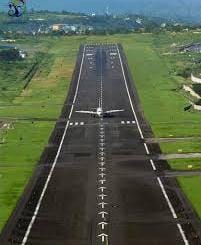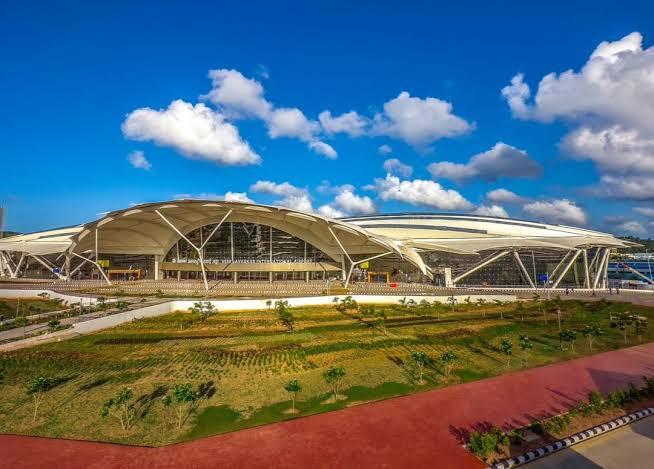– Sajida A. Zubair
Traveling to the Andaman Islands, a picturesque archipelago in the Bay of Bengal, often comes with a hefty price tag. Situated near Southeast Asia, the Andaman and Nicobar Islands have the potential to bolster India’s Look East-Act East policy. Although these islands make up only 0.2 percent of India’s landmass, they encompass 30 percent of the country’s 200-nautical-mile Exclusive Economic Zone (EEZ). During peak tourist seasons, airfares can skyrocket, making it challenging for budget-conscious travelers to consider the Andamans as a viable destination. This issue is further exacerbated for residents of the islands, who frequently need to travel to the mainland for education, healthcare, and other essential services.
The connectivity of the Andamans to mainland India is crucial for several reasons, the most critical being the islands’ limited medical facilities. Residents often need to travel to the mainland for specialized treatment, making efficient and affordable air connectivity a lifeline for patients and their families. There have been many instances where patients have lost their lives due to the lack of emergency and affordable flight services.
 The lack of good avenues for higher education is also a pressing issue for the islanders. Many students from the Andamans pursue higher education in mainland India. The plight of these students is exacerbated by exorbitant airfares, making it difficult for them to travel back home. High travel costs often mean these students cannot visit their families as frequently as they would like, adding emotional strain to their academic challenges.
The lack of good avenues for higher education is also a pressing issue for the islanders. Many students from the Andamans pursue higher education in mainland India. The plight of these students is exacerbated by exorbitant airfares, making it difficult for them to travel back home. High travel costs often mean these students cannot visit their families as frequently as they would like, adding emotional strain to their academic challenges.
The Islands are heavily dependent on mainland India for a wide range of essential supplies. Given the islands’ remote location and limited local resources, they rely on the mainland for the import of food, medicines, fuel, and other necessities. Regular shipments and flights are crucial to ensure a steady flow of these goods, which are vital for the daily life and well-being of the islanders. Any disruption in connectivity can lead to significant shortages, highlighting the islands’ reliance on consistent and efficient supply chains from mainland India.
In the event of natural disasters or emergencies, quick and efficient connectivity is vital for evacuation and relief operations. The islands are susceptible to various natural calamities such as cyclones, tsunamis, and earthquakes. Rapid response capabilities are essential to evacuate residents from affected areas, provide immediate medical care, and deliver critical supplies and humanitarian aid. Efficient air and sea links ensure that rescue teams and relief materials can be mobilized swiftly, minimizing the impact of disasters and aiding in quicker recovery efforts for the affected populations. The tropical climate of the Andamans can lead to unpredictable weather, causing flight delays and cancellations, further complicating travel plans.
The high cost of flights to the Andaman and Nicobar Islands can be attributed to several factors, including limited flight options, high operational costs for airlines, and the geographical isolation of the islands. The most recent comprehensive discussion on addressing air connectivity issues to the Andaman & Nicobar Islands took place at the Civil Aviation Conference in New Delhi on July 18, 2014, more than a decade ago. The conference was chaired by Shri Anand Prakash, Chief Secretary of the A&N Administration, and attended by Shri Bishnu Pada Ray, Hon’ble Member of Parliament, Shri Anil Srivastava, Joint Secretary and CMD of Pawan Hans, Shri Alok Sinha, Chairman of AAI, and Shri Mohan Jeet Singh, Commissioner-cum-Secretary of Civil Aviation, A&N Administration. Senior executives from Air India, Alliance Air, Jet Airways, SpiceJet, GoAir, Air Costa, Air Asia, Club Air, A.R. Airways, and members of the Andaman Chamber of Commerce & Industries also participated. During the tenure of Lt. Governor A K Singh, Air India began charter services with fixed airfares of 5000/- for islanders, a practice that is no longer in place.
At present, just a few airlines serve routes to Port Blair, and the lack of budget carriers worsens the situation. Despite efforts from the solitary Member of Parliament, local representatives, and NGOs, who have submitted letters to the Lieutenant Governor, the current airfares from mainland India to Port Blair stand at 20,000/- per person.
To alleviate the financial burden on travelers and residents, it is crucial to introduce more chartered and low-cost flight options. Although the Veer Savarkar International Airport in Port Blair has undergone recent enhancements, including the inauguration of a new terminal by the Prime Minister of India, the pressing concerns of the islanders remain unaddressed. The high airfares to and from the Andaman Islands are a pressing issue that requires immediate attention. Enhanced connectivity is not just about travel convenience; it is about ensuring the well-being of the island’s residents and integrating the Andaman Islands more closely with mainland India. Addressing these challenges will pave the way for a more connected, inclusive, and prosperous future for this beautiful archipelago.




